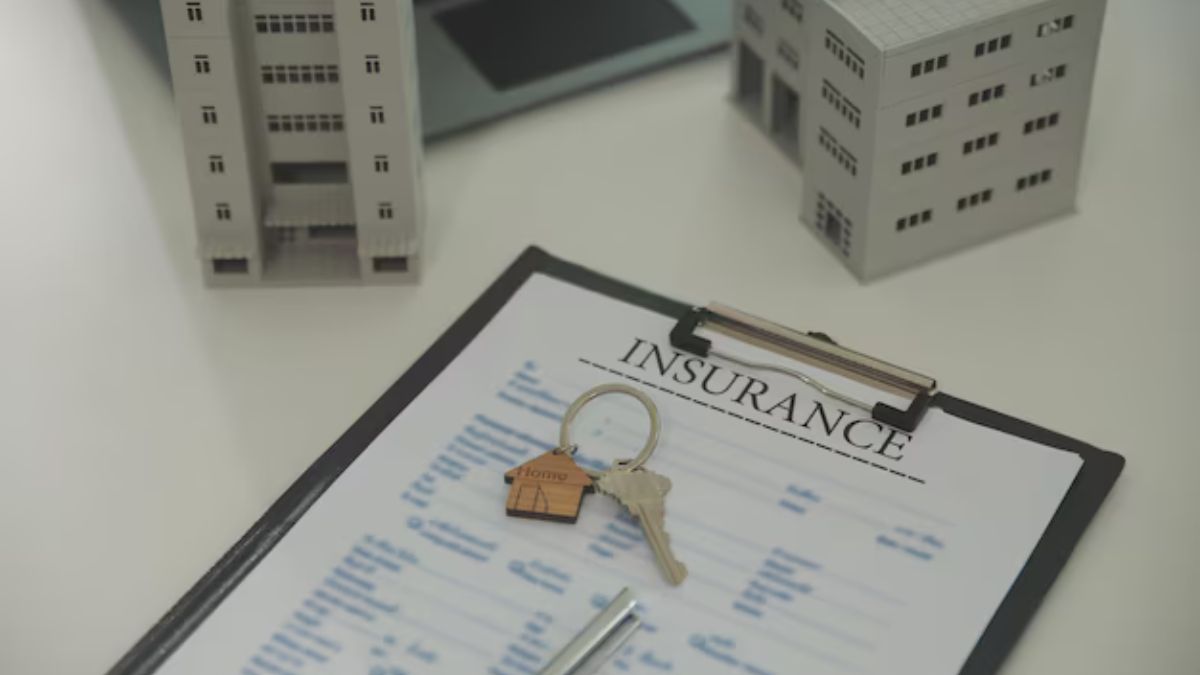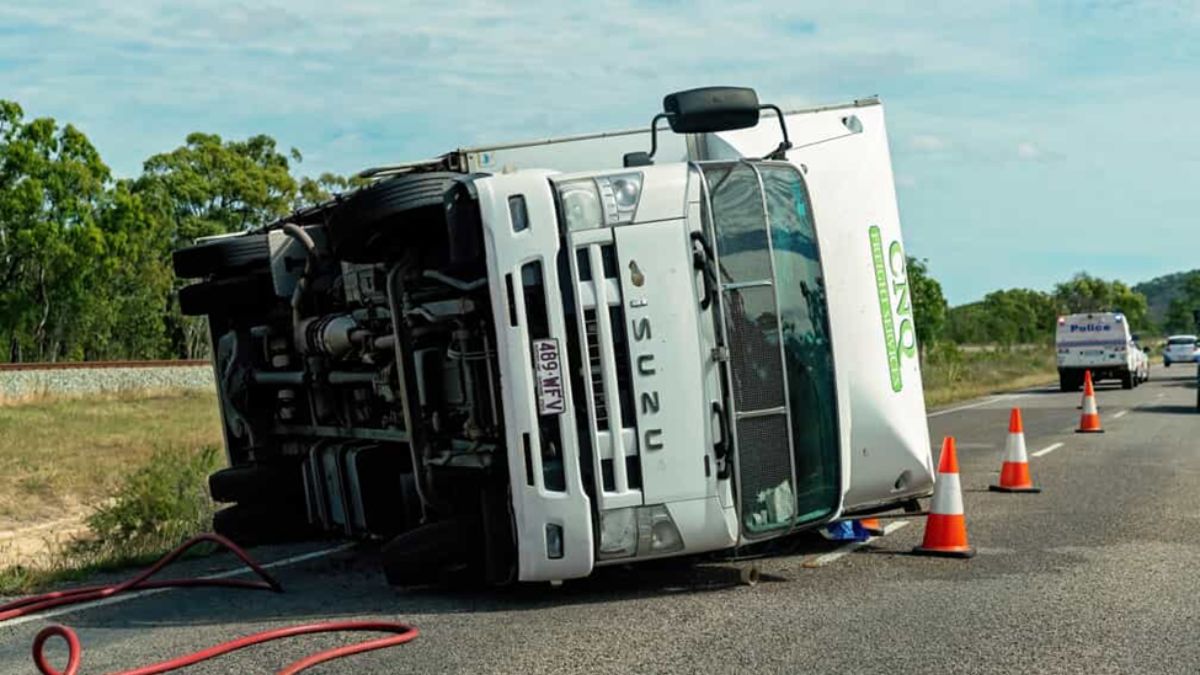INSURANCE
Introduction to Personal Injury Settlement Trusts

Personal injury settlement trusts, often called settlement trusts, play an essential part in the economic recovery of individuals who have received compensation from personal injury cases. These trusts are designed to help manage and protect settlement funds, ensuring they are used prudently and effectively to cover future medical, rehabilitation, and living expenses. Individuals can safeguard their financial recovery and achieve long-term stability by utilizing a personal injury settlement trust. Moreover, these trusts can alleviate the stress and confusion often associated with managing large sums of settlement money, particularly for those needing more financial expertise.
Why Consider a Settlement Trust?
A personal injury settlement trust offers numerous benefits, such as tax advantages and protection of assets from creditors. These trusts are typically managed by professional trustees with the expertise to navigate complex legal and financial landscapes. They can be especially advantageous for those who require greater financial knowledge to handle significant amounts of money effectively. Trustees provide investment management and budgeting assistance and guarantee adherence to legal and regulatory mandates, all of which aid in carefully managing settlement funds.
How Settlement Trusts Work
- Initial Setup: The funds are transferred into a trust after settling. Legal and financial advisors specializing in settlement planning often facilitate this step. Creating the trust document, which sets out the terms and conditions for how the trust will function, is essential.
- Trust Management: A trustee is appointed to manage the trust funds, making distributions as needed. The trustee’s role is vital as they invest and protect the trust’s assets. Their responsibilities include monitoring the performance of investments, making informed decisions about distributions, and ensuring the trust complies with relevant laws.
- Beneficiary Support: The trust financially supports the injured party in covering various expenses. It can include ongoing medical treatments, rehabilitation programs, daily living costs, and other expenses outlined in the trust document. The trust’s structure ensures that funds are available when needed, providing a reliable source of financial support over the long term.
Types of Settlement Trusts
There are several types of settlement trusts, each serving a unique purpose. Special needs trusts help individuals with disabilities receive benefits without impacting their eligibility for government assistance programs, including Medicaid and Supplemental Security Income (SSI). These trusts ensure the injured party can receive necessary support without compromising their access to essential government benefits. In contrast, structured settlement annuities offer a consistent income flow over time, which is crucial for extended financial planning. These annuities can be customized to fulfill particular requirements, such as monthly payments, one-time payouts for significant expenses, or a mix of both.
Financial Benefits of Using a Settlement Trust
Using a settlement trust can offer significant financial benefits. Trusts can provide substantial tax savings and protect settlement funds from prematurely depleting. They also add a layer of economic security, especially for those needing more expertise to manage large sums of money. Additionally, the structured nature of these trusts can prevent beneficiaries from making hasty financial decisions that could jeopardize their financial future. The trustee’s role in managing the funds includes investment strategies that can grow the trust’s assets over time, providing even more financial resources for the injured party.
Legal Considerations
Establishing a settlement trust involves various legal steps and considerations. It’s essential to consult with a legal professional specializing in trust law to ensure all requirements are met. This process often involves drafting a detailed trust document that specifies how the funds will be managed and distributed. Moreover, the trust must comply with state and federal regulations, which can vary significantly. Legal professionals will also help ensure the trust aligns with the beneficiary’s long-term financial plans and complies with relevant legal constraints. Proper legal advice can help navigate the complexities of trust law and safeguard the interests of all parties involved.
Real-Life Applications
In practice, settlement trusts have helped countless individuals secure their financial futures following personal injury settlements. Take, for example, a case highlighted by the American Bar Association, where a personal injury client used a trust to cover ongoing medical expenses and ensure long-term financial stability. This client faced significant medical and rehabilitation costs and could use the trust to meet those needs without prematurely depleting their funds. This case underscores the practical benefits and peace of mind that a well-managed trust can provide, showcasing the trust’s ability to offer tailored financial solutions that address specific needs and circumstances.
Steps to Establish a Settlement Trust
- Consult a Financial Advisor: Before setting up a trust, it’s crucial to consult a financial advisor to understand your needs and options. Advisors can offer valuable insights into whether a trust is appropriate for your situation and help clarify the available types.
- Select a Trustee: Choose a trusted professional to manage the trust. The selection process should involve evaluating the trustee’s experience, reputation, and understanding of trust management and personal injury settlements.
- Create the Trust Document: Work with a legal professional to draft the trust document.
- Fund the Trust: Transfer the settlement funds into the trust. This step ensures the trust is adequately funded and ready to meet the beneficiary’s needs.
- Ongoing Management: Regularly review and manage the trust to ensure it meets your needs. It involves ongoing communication with the trustee, periodic assessments of the trust’s performance, and adjustments to align with the beneficiary’s changing circumstances.
INSURANCE
What Every Renter Needs to Know About Tenant Insurance Coverage Options

When renting a home or apartment, tenant insurance is an essential safeguard that offers protection for your personal belongings and liability. Whether you’re living in a small studio or a multi-bedroom house, tenant insurance helps you avoid financial loss in the event of accidents, theft, or unexpected events. However, many renters are unaware of the variety of coverage options available to them. Understanding these options can help ensure that your policy meets your needs while offering valuable protection. In this guide, we’ll walk you through the key tenant insurance coverage options and tips for selecting the right plan.

Reviewing Your Insurance Premium
As a renter, it’s important to periodically review your tenant insurance premium. Premiums can vary depending on several factors, including the value of your belongings, the coverage limits, and the location of your rental. Over time, your needs may change as life changes mean reviewing your tenant insurance and adjusting it to reflect these life changes means reviewing your tenant insurance. It’s essential to shop around to ensure that you’re getting the best coverage for the most competitive rate. Keep in mind that factors like your rental history, claim history, and even the security measures in place at your home can affect the cost of your insurance premium.
Personal Property Protection
One of the core aspects of tenant insurance is personal property coverage. This protects your belongings from damage or loss due to events such as fire, theft, vandalism, or certain natural disasters. Common items covered include furniture, electronics, clothing, and appliances. The amount of coverage you choose will depend on the value of your items. You can either select a policy with actual cash value (ACV) or replacement cost coverage. ACV reimburses you for the value of items after depreciation, while replacement cost coverage provides funds to replace damaged items with new ones.
Liability Coverage

Liability coverage is another crucial aspect of tenant insurance. It protects you if someone is injured on your property or if you cause damage to someone else’s property. For example, if a guest slips and falls while visiting your apartment, liability coverage would help cover their medical expenses and protect you from lawsuits. This coverage can also extend to damage you accidentally cause to the building, such as flooding the apartment below with an overflowing bathtub. Liability protection is particularly important if you live in a shared space or high-traffic area.
Additional Living Expenses Coverage
If your rental unit becomes uninhabitable due to a covered event, such as a fire or severe water damage, additional living expenses (ALE) coverage can help. This provision pays for the cost of temporary housing, such as a hotel or rental property, until your home is repaired. ALE coverage also includes reimbursement for additional living costs, such as meals or transportation, if necessary. It’s important to understand the limits of this coverage, as some policies may only pay for a specific period or a set amount.
Tenant insurance is an important protection that every renter should have in place, but understanding the various coverage options is essential. By staying informed about your options and customizing your coverage, you can make sure that you’re fully protected in case of unexpected events.
INSURANCE
The Benefits of Hiring Storm Damage Repair Experts for Insurance Claims

Navigating the aftermath of a storm can be an overwhelming experience, particularly when it comes to managing the damage inflicted on homes and properties. In these challenging situations, homeowners often face the daunting task of dealing with insurance claims while trying to restore their homes to pre-storm conditions. We will explore the numerous advantages of hiring storm damage repair experts in Duluth who are well-versed in storm damage repair and insurance processes. By engaging these knowledgeable individuals, homeowners can alleviate stress, improve claim accuracy, and ensure the repair process is handled efficiently and effectively.
Comprehensive Damage Assessment
One of the primary benefits of enlisting the help of professionals in storm damage repair is their ability to conduct a thorough assessment of the damage. After a storm, visible destruction may not encompass the entire extent of the issue. Professionals trained in this field have a keen eye for detail and can identify hidden damage, such as compromised roofing, structural issues, and water intrusion. They possess the knowledge to inspect every aspect of the property, from the roof to the foundation, ensuring that nothing goes unnoticed. This comprehensive evaluation is crucial for accurately documenting the damage when filing an insurance claim.
Insurance companies often require extensive evidence and detailed reports to approve claims. By having a professional conduct a meticulous assessment, homeowners can submit a well-documented claim that covers all aspects of the damage. This helps secure the maximum payout and expedites the claims process, reducing the time spent waiting for resolution. Homeowners can thus focus on what matters most: restoring their homes and returning to their daily lives.
Accurate Documentation for Insurance Claims
Filing an insurance claim is often a complex process that can become overwhelming, especially for those unfamiliar with the necessary documentation and requirements. Hiring storm damage repair professionals significantly alleviates this burden. These professionals understand the nuances of insurance policies and can assist homeowners in preparing the required documentation accurately. They provide detailed reports, photographs, and assessments that can strengthen the claim. Their experience in this area helps in clearly articulating the extent of the damage and justifying the costs associated with the repairs.
Additionally, many professionals maintain relationships with insurance companies, which can be advantageous during the claims process. This familiarity can lead to more effective communication and negotiation, ensuring the claim is processed efficiently. Having an experienced professional advocate on their behalf can empower homeowners, allowing them to navigate the insurance maze with confidence. Ultimately, this can result in a smoother claims process and a higher likelihood of receiving the compensation necessary to cover repair costs.
Efficient and Timely Repairs
Once the claims process is underway, the next crucial step is repairing the storm damage. Hiring professionals in storm damage repair ensures the restoration process is conducted promptly and effectively. These individuals possess the necessary skills and tools to conduct repairs safely and efficiently, reducing the risk of further damage to the property. For instance, if a roof has been compromised, timely repairs can prevent water damage from spreading throughout the home, which could lead to more extensive and costly repairs down the line.
Additionally, professionals have established networks of suppliers and subcontractors, allowing them to source materials quickly and often at better prices. This streamlined approach enables homeowners to return to normal routines faster, as repairs are completed promptly. With their ability to coordinate multiple aspects of the repair process, such as scheduling inspections and managing timelines, professionals ensure that homeowners can focus on their lives rather than getting bogged down by the logistics of the restoration.
Stress Reduction and Peace of Mind
Navigating the aftermath of a storm is not only physically taxing but also emotionally draining. The uncertainty and stress associated with damage repair and insurance claims can be overwhelming for homeowners. Engaging storm damage repair professionals allows homeowners to transfer much of this burden to knowledgeable individuals who can handle the intricacies of the situation. With experts taking charge of the repair and claims process, homeowners can rest easy knowing that their property is in capable hands.
Moreover, professionals can provide reassurance during a tumultuous time. They can guide homeowners through each process step, answering questions and addressing concerns. This support fosters a sense of confidence and security, allowing homeowners to focus on their families and daily responsibilities rather than worrying about their property’s restoration. The peace of mind from knowing that experienced individuals are managing the repairs cannot be overstated.
Hiring professionals for storm damage repair can significantly benefit homeowners, particularly when navigating the complexities of insurance claims. From conducting thorough assessments and accurate documentation to ensuring efficient repairs and compliance with local regulations, these knowledgeable individuals provide invaluable support during challenging times. The emotional relief and peace of mind from entrusting these responsibilities to capable hands allow homeowners to focus on restoring their lives after a storm. By forming long-lasting relationships with reliable professionals, homeowners can enhance the value and safety of their properties while ensuring they are well-prepared for future emergencies.
INSURANCE
The Parties That Can Be Held Liable for a Seattle Truck Accident

Truck accidents in Seattle can be devastating. Commercial trucks’ sheer size and weight make collisions particularly dangerous, often resulting in severe injuries and property damage. If you or someone you know has been involved in a truck accident in Seattle, it’s crucial to understand your legal rights. This article will discuss the various parties who could be held liable for such accidents, providing valuable information for those seeking justice.
Seattle area truck accident attorneys can help you navigate the complex legal landscape and protect your interests. They have the expertise to assess your case, gather evidence, and negotiate with insurance companies to secure the compensation you deserve.
The Trucking Company
Trucking companies bear primary responsibility for the actions of their drivers. This means the company can be liable if a truck driver’s negligence causes an accident. Several factors can contribute to a trucking company’s liability, including:
- Negligent hiring and training: If a company hires a driver with a history of reckless driving or fails to provide adequate training, they may be held responsible for accidents caused by the driver’s incompetence.
- Inadequate maintenance: Trucks must be regularly inspected and maintained to ensure their safe operation. If a company fails to properly maintain its fleet and a mechanical failure leads to an accident, it could be liable.
- Overloading or improperly securing cargo: Overloaded or improperly secured cargo can shift during transit, causing the truck to lose control. Trucking companies must ensure that cargo is loaded and secured safely.
- Violations of hours-of-service regulations: Federal regulations limit truck drivers’ work hours to prevent fatigue-related accidents. If a company forces drivers to work excessive hours, they may be liable for any resulting accidents.
In addition to direct liability, trucking companies can also be held vicariously liable for the actions of their drivers. This means the company is legally responsible for the driver’s negligence, even if it was not directly involved in the accident.
The Truck Driver
Truck drivers are directly responsible for their actions on the road. Negligent driving can lead to serious accidents and significant liability for the driver. Specific acts of negligence that could contribute to an accident include:
- Speeding: Exceeding the posted speed limit can significantly increase the risk of an accident, especially for large commercial vehicles.
- Distracted driving: Any activity that takes a driver’s attention away from the road, such as using a cell phone or eating, can be considered distracted driving and can lead to accidents.
- Driving under the influence of drugs or alcohol: Operating a vehicle while under the influence of drugs or alcohol is illegal and extremely dangerous. Truck drivers who are caught driving impaired can face severe legal consequences.
- Fatigue: Driving while fatigued can impair a driver’s judgment and reflexes, increasing the risk of an accident. Truck drivers must adhere to federal regulations regarding hours of service to prevent fatigue-related accidents.
- Failure to yield or maintain proper distance: Truck drivers must be cautious when merging, turning, or following other vehicles. Failure to yield or maintain a safe following distance can contribute to accidents.
It’s important to note that a truck driver’s liability may be influenced by their employment status. If the driver is an employee of the trucking company, the company may be vicariously liable for the driver’s negligence. However, the company’s liability may be limited if the driver is an independent contractor.

The Manufacturer or Supplier
Defective truck components or parts can sometimes cause truck accidents. Manufacturers and suppliers of these components can be held liable for accidents resulting from their defective products.
Examples of defects that could lead to accidents include:
- Faulty brakes: Defective brakes can prevent a truck from stopping in time, leading to collisions.
- Steering issues: Faulty steering components can cause a truck to veer off the road or lose control.
- Tire blowouts: Defective tires can blow out while driving, causing the truck to lose control.
The concept of product liability holds manufacturers and suppliers responsible for defective products that cause harm. There are several theories under which manufacturers or suppliers can be held liable, including:
- Negligence: Manufacturers and suppliers can be liable for negligence if they fail to exercise reasonable care in the design, manufacture, or sale of their products.
- Strict liability: Under the theory of strict liability, manufacturers and suppliers can be held liable for defective products even if they were not negligent. This means the plaintiff must not prove that the manufacturer or supplier was at fault.
- Breach of warranty: Manufacturers and suppliers often provide warranties for their products. The manufacturer or supplier may be liable for damages if a product fails to meet the warranty terms.
The National Highway Traffic Safety Administration (NHTSA) states that defective tires cause truck accidents. In a recent study, NHTSA found that tire failures were involved in approximately 11,000 truck accidents yearly.
Other Potential Parties
While trucking companies, truck drivers, and manufacturers are often involved in truck accident liability cases, other parties may bear responsibility. These parties include:
- Cargo loaders or unloaders: If cargo is improperly loaded or unloaded, it could contribute to an accident. For example, if cargo is not secured properly, it could shift during transit and cause the truck to lose control.
- Road maintenance crews: Poor road conditions, such as potholes or inadequate signage, can increase the risk of accidents. If a road maintenance crew is responsible for creating or failing to address dangerous road conditions, they could be liable for any resulting accidents.
- Third-party contractors: Trucking companies may hire contractors to perform various tasks, such as maintenance or repairs. The trucking company may be liable if a contractor’s negligence contributes to an accident.
It’s important to consult with an attorney to determine all potential parties who could be held liable for a truck accident. An experienced attorney can help you identify all responsible parties and build a strong case to recover damages.

 Cartoon1 year ago
Cartoon1 year agoUnlocking the Potential of Nekopoi.care: A Comprehensive Guide

 Game1 year ago
Game1 year agoExploring Aopickleballthietke.com: Your Ultimate Pickleball Destination

 BUSINESS1 year ago
BUSINESS1 year agoWhat Companies Are In The Consumer Services Field

 BUSINESS11 months ago
BUSINESS11 months agoUnraveling the Mystery of 405 Howard Street San Francisco charge on Credit Card

 HOME IMPROVEMENT1 year ago
HOME IMPROVEMENT1 year agoVtrahe vs. Other Platforms: Which One Reigns Supreme?

 TECHNOLOGY12 months ago
TECHNOLOGY12 months agoThe Guide to Using Anon Vault for Secure Data Storage

 ENTERTAINMENT8 months ago
ENTERTAINMENT8 months agoUnderstanding Bunkr Album: A Comprehensive Guide

 ENTERTAINMENT1 year ago
ENTERTAINMENT1 year agoThe Epic Return: Revenge of the Iron-Blooded Sword Hound
















